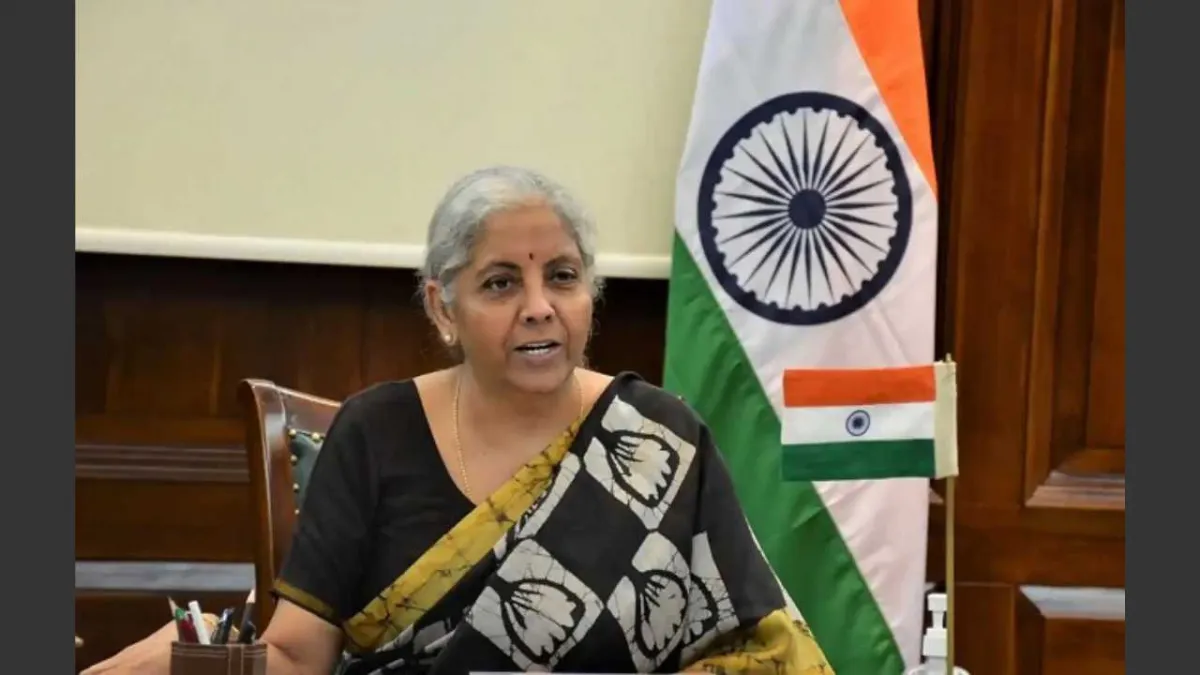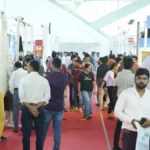Union Finance Minister Nirmala Sitharaman stated that the Goods and Services Tax (GST) reforms are a major victory for every citizen of the country.
Sitharaman said at an event that considering the festivals of each state in India, the decision to implement GST reforms was made well before Prime Minister Narendra Modi’s directive to implement them before Diwali.
In her address at the ‘Tax Reforms for an Emerging India’ event, Sitharaman stated that the beneficial impact of the Goods and Services Tax will be felt on all products, from the start of the morning until going to sleep at night.
Highlighting some key initiatives, Sitharaman mentioned that for 99 percent of items previously taxed at 12 percent under GST, the tax will now be only five percent.
The new GST reforms (2.0) will come into effect from September 22.
Referring to the reduction in tax rates on over 350 items by the GST Council, she explained that the central government has implemented only five and 18 percent slabs, instead of the previous practice of applying taxes under different slabs.
She said, “We have also simplified the process for traders. There is no 28 percent GST tax on any product.”
Mentioning the increase in the tax net for traders, she stated that before GST was implemented in 2017, only 66 lakh traders filed taxes. But today, over the past eight years, 1.5 crore businesses have come under the GST net.
She said, “Opposition leader Rahul Gandhi called GST the Gabbar Singh Tax, but after GST was implemented, the number of businesses paying taxes has increased to 1.5 crore over the past eight years because they realized they would benefit from it.” She added, “This number of 1.5 crore traders filing GST over the past eight years will increase further in the future.” She further stated that this growth has increased the revenue received by the central and state governments.
The Finance Minister reported that tax collection in 2017 was ₹7.19 lakh crore, and now the gross GST collection has exceeded ₹22 lakh crore. An average revenue of ₹1.8 to 2 lakh crore is collected by the central and state governments. For example, a gross revenue of ₹1.80 lakh crore is split equally, with states receiving ₹90,000 crore and the center receiving ₹90,000 crore. Out of that ₹90,000 crore revenue share for the center, about 41 percent goes back to the states.
She said, “From this, we can understand that the implementation of GST will benefit the public and state governments.”
On the classification issues raised by some traders before the GST reforms were implemented, Sitharaman gave an example, stating that a classification has been made for popcorn sales. If salted popcorn is sold, it will be taxed at five percent under the ‘salted’ category, while sweet popcorn was taxed at 18 percent.
She said, “There is no tax on popcorn sold on the roadside. But when the same popcorn is branded and made in a factory, this classification applies. However, the latest GST reforms have simplified this. Now, all food products fall under the five percent slab or have no tax applied. Therefore, there is no classification problem now. This popcorn example is understandable for all of you.”
Sitharaman stated that such measures have been taken to accelerate the Prime Minister’s vision of a developed India.
The Finance Minister said, “I hope people will welcome this move. In fact, several companies like Hindustan Unilever Limited and Godrej have assured me that they will pass on the benefits to the public.”
On this occasion, the Union Minister also released a book in English and Tamil, which illustrates the benefits Tamil Nadu will receive from the implementation of GST reforms.
She said, “What was the taxation before and what is new now, and how will Tamil Nadu benefit from these GST reforms? It is clearly mentioned here, and I urge all of you to read this book, which is available in both English and Tamil.”






